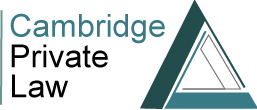Speaker: Mr Nick McBride (University of Cambridge)
Contrary to the claims of HLA Hart, there is no rule of recognition that allows us to determine whether under the common law a given proposition of law p is valid. There is instead only a practice of going about determining whether p is valid under the common law. Law students in common law jurisdictions are inculcated into this practice from day one of their studies by witnessing how others – principally judges, but also academics – go about determining whether p is valid under the common law.
Like other practices, the practice of determining what the common law says may be limited by rules, that rule out taking certain positions or making certain moves (such as saying that p is valid if in-force legislation is inconsistent with p), but ultimately the practice of determining what the common law says cannot be reduced down to a set of rules any more than the practice of playing chess or writing a novel can be. A skilled practitioner’s knowledge of how to go about determining what the common law says will never be able to be fully articulated. All they will be able to offer are rules of thumb that can be justifiably departed from almost as often as they are followed.
If these claims are true, then insofar as the private law of common law jurisdictions is derived from the common law, private law seems destined to be plagued by an insider-outsider problem. Only insiders – those acquainted with the practice of determining what the common law says – can take a view on what private law says. Outsiders cannot form such a view and can only rely on the views of insiders as to what private law says. It follows that lay ignorance of private law is a feature of common law jurisdictions, rather than a bug. This paper explores the implications of this for private law in respect of its relevance, justice and future and makes some suggestions as to how those implications can be avoided despite the fact that private law is underpinned just by a practice, rather than a rule, of recognition.
Sandwiches served in the Lower Ground Atrium between 12.30pm and 1pm; seminar to commence in the MCR at 1pm.
This seminar is open to all LLM, MCL and PhD students, Faculty members and Faculty visitors but is not open to undergraduate students.
The Cambridge Private Law Centre acknowledges with gratitude the generous financial support of XXIV Old Buildings and of South Square.
We hope that you can make it to these exciting events: Peter Candy, Poorna Mysoor, Eugene Shevchuk, Fleur Stolker (Convenors)
If you have questions or are interested in speaking at a future CPLC event, please email privatelaw@cam.ac.uk


